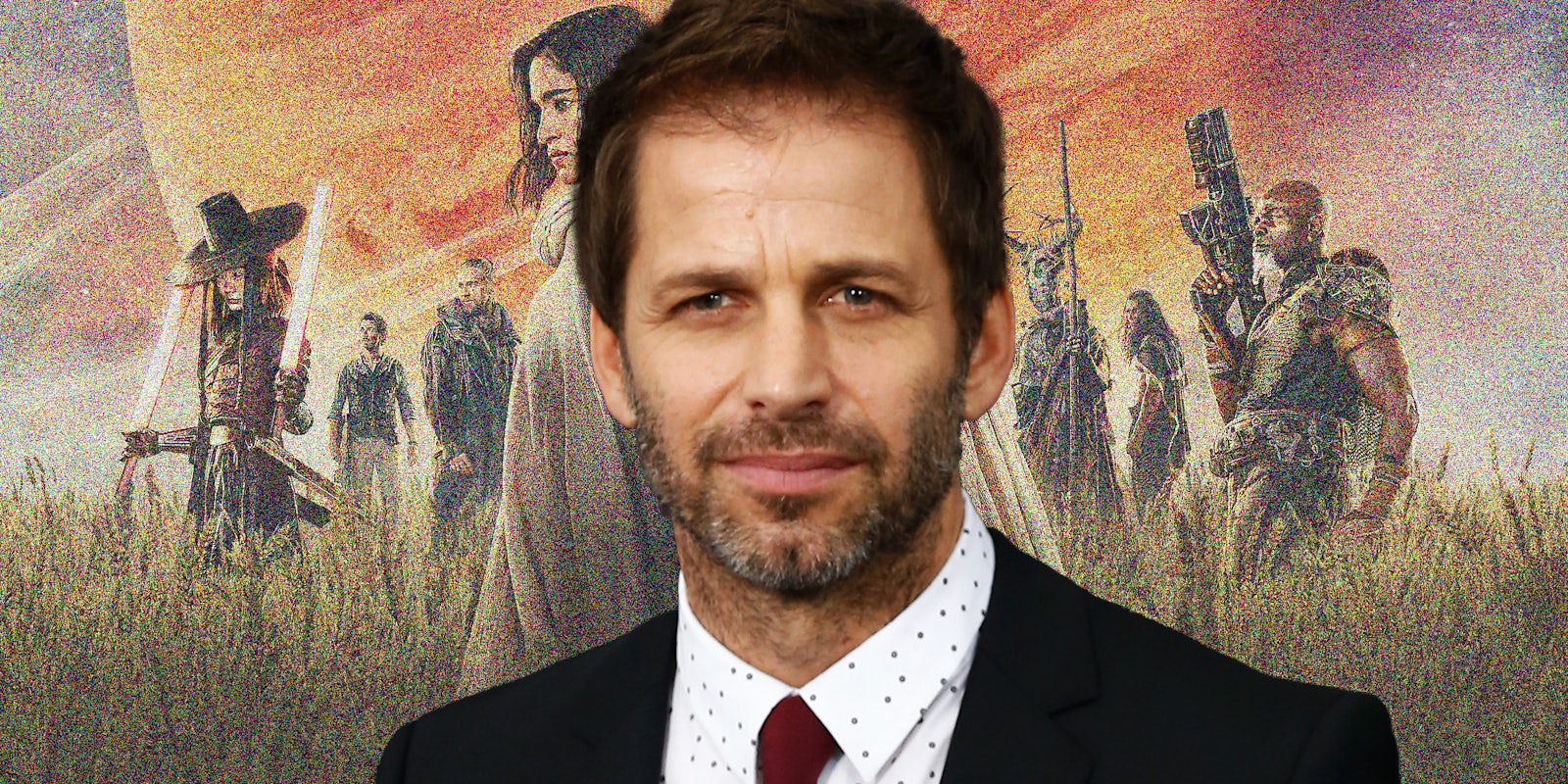Decoding Fandom is a weekly column that dives deep into the world of fan culture and runs on Saturdays in the Daily Dot’s web_crawlr newsletter. If you want to get this column a day before we publish it, subscribe to web_crawlr, where you’ll get the daily scoop of internet culture delivered straight to your inbox.
Zack Snyder and his fans are some of the most controversial figures in entertainment. Not due to outright political issues—though those are certainly at play—but because of the sometimes toxic nature of the fandom and the divisiveness of the director’s filmmaking style.
Snyder’s most recent film, Rebel Moon – Part One: A Child of Fire, has ignited controversy once again. Last week, the film debuted on Rotten Tomatoes with a disappointing 14%. In response, Snyder’s fans, many of whom hadn’t yet seen the film, logged on to X to defend it.
Fans critiqued the validity of Rotten Tomatoes as a platform, suggesting that the site is “fake” and not to be trusted. This is a fair criticism, especially considering recent reports suggesting that PR firms regularly pay critics to positively review their films. Indeed, fans are right that Rotten Tomatoes is a “mess” and their metrics are suspect, but critic scores are much more likely to be artificially inflated than artificially deflated, making this point less salient.
Snyder fans also took aim at specific critics, and Owen Gleiberman’s review in Variety and David Rooney’s in The Hollywood Reporter bore the brunt of the outrage. The response to Rooney’s review on X was particularly vitriolic, with fans calling him “idiotic” and a “loser.” One fan compiled the reviews they found most offensive—including Gleiberman’s—and declared “these people are sick.”
The main criticism of these reviews is that they are “unprofessional.” The way Snyder fans see it, these critics are biased and have a vendetta against Snyder and his films. The fans were especially insulted by the articles that reference the fandom, as Gleiberman’s and Rooney’s both do. Fans perceived these references as evidence of the fact that critics are nothing more than bitter “haters.”
But what of the actual content of these negative reviews? Gleiberman makes three references to the “fanboy/Snyder cult,” but also concedes that the Snyder Cut is “quite extraordinary.” Rooney only mentions Snyder fans once, musing about whether “the fanboys” will enjoy the film.
To be sure, some of these reviews include some pretty sick burns. Polygon’s Kyle Wilson calls the film a “turgid whimper of a movie” while IndieWire’s David Ehrlich calls it “the cinematic equivalent of an NFT.” But whether these writers mention the “Snyder cult” or not, the gist of these reviews is consistent—critics found the film’s narrative uninspired and the writing thin.
This discourse brings up an interesting question—should critics engage with fandom in their work? Considering the angry response to these reviews, one might conclude the answer is no. But good criticism should engage with the cultural context in which a film is produced, and fandom is undoubtedly a part of that context. In this case, many critics concluded that Snyder made a film that only his devotees would like, while the fans see these critics as resentful know-it-alls.
Such rhetoric reflects the climate we’re in in terms of criticism. Due in large part to the dominance of Rotten Tomatoes, audiences’ understanding of film criticism lacks nuance and is primarily based on questionable metrics of quality. Per Rotten Tomatoes’ own system, you’re either a fan or a hater.
We’re so far removed from the era of Siskel and Ebert, a time when the opinions of specific critics really mattered to people. Nowadays, fans tend to ignore or even feud with critics they disagree with, making these groups appear diametrically opposed.
Why it matters
As fans get more powerful—something we saw firsthand with the release of the Snyder Cut—critics’ opinions and professional expertise carry less weight.
This development doesn’t bode well for our collective critical thinking skills, which is exactly what good criticism can help us develop. Must fandom be the enemy of intellectual curiosity?



